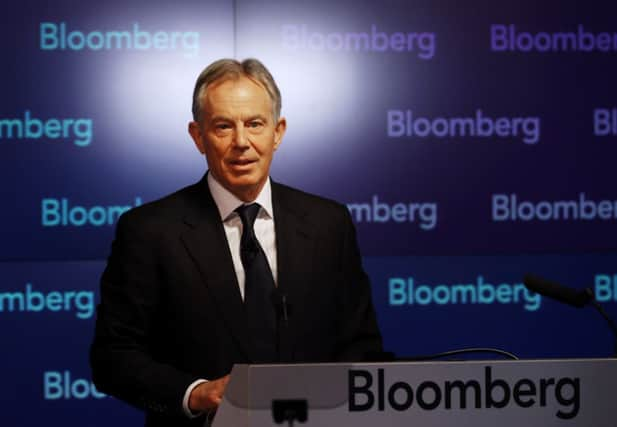Allan Massie: MPs not willing to stick around


In 1931, Winston Churchill was left out of the newly formed National government, and not only because he was recuperating in New York after a traffic accident. At the age of 56 he simply wasn’t wanted, despite having been chancellor of the Exchequer from 1924-9 in the previous Conservative government. He was again omitted when Stanley Baldwin replaced Ramsay MacDonald as prime minister in the coalition after the 1935 election. If Churchill had been like today’s politicians, he would probably either have left parliament or lobbied for a peerage and retirement to the House of Lords. But he remained in the Commons and in 1940 the nation was happy that he had done so. Even more remarkably, perhaps, after his election defeat in 1945, he declined the dukedom George VI offered him, remained leader of the opposition, and was again prime minister in 1951.
That was how politicians behaved then. David Lloyd-George never held office again after he was dislodged from Downing Street in 1922, but remained an MP for more than 20 years afterwards. Sir Alec Douglas-Home, prime minister 1963-4, also remained politically active after losing an election, and served as foreign secretary in the Heath government 1970-4. But no prime minister since has done likewise, though Ted Heath himself did hope – vainly – that Margaret Thatcher would offer him a senior Cabinet post in 1979.
Advertisement
Hide AdAdvertisement
Hide AdThings are different now. Gordon Brown is leaving the Commons though he is a few years younger than Churchill was in 1940. His predecessor Tony Blair left British politics almost as soon as he was out of Downing Street. John Major, having resigned the Tory leadership in 1997, didn’t stand for election in 2001. There’s a lot of talk now about the professionalisation of politics, but it’s a profession which men who have been at the top abandon once they lose office. It has become unusual for a defeated prime minister to continue to lead his party in opposition, with the intention of returning to Downing Street. The last to do so was Harold Wilson, 40 years ago.


Perhaps things have changed because politics is now viewed as a career rather than a service?
Yet senior politicians have much to offer, and not only because in politics as in business things are apt to go wrong or crash when there is no-one left in the office who remembers the last crash. I’ve no doubt that the outgoing coalition’s record in world and European affairs might have been better if Sir John Major had remained to served as foreign secretary.
Likewise, the next parliament will be the poorer for the absence – an unnecessary and voluntary absence – of Gordon Brown, Alastair Darling and William Hague, all still comparatively young, yet rich in experience. It is, one might add, to Alex Salmond’s credit that, undeterred by his referendum defeat, he is remaining active and attempting to return to the House of Commons.
Experience no longer seems to be valued – or, to put it another way, those with experience of government appear to decide with regrettable speed that they have no longer anything of value to contribute. There are, admittedly, a few exceptions. Ken Clarke, despite being rejected by his party in three leadership elections, didn’t walk away from politics, but served in the coalition Cabinet – and David Cameron has paid tribute to the value of his contribution. If Labour forms the next government, wouldn’t Ed Miliband benefit from having someone of Alastair Darling’s experience at the table? Nobody after all is likely to be more alert to the next round of danger signals in the City of London.
None of the leading members of the outgoing Coalition had much experience of the business of government before they took office. Indeed David Cameron, Nick Clegg, George Osborne and Danny Alexander – the quartet who have been responsible for economic and fiscal policy – had no experience at all. Given that they have had to learn on the job, they haven’t done badly. If they return to office, they will at least have learned that government is more difficult than it appears when you are in opposition, since it is often a matter of choosing the least bad of available options.
If Labour forms the next government, its Cabinet will be almost equally inexperienced, even though it is only five years since the party was last in office. All the so-called big beasts of the Blair and Brown years will have gone. We will be governed by a set of novices still wet behind the ears, men and women who have not served an apprenticeship in office, who have not had the opportunity to learn the tradecraft of government – and who will not have the benefit of senior politicians on hand to give advice, warn of pitfalls, or draw on their experience of the difficulty of translating policy into action.
The art of government is not something which can be learned or mastered overnight. Gladstone, whose political career spanned more than half a century, once said that someone might as well start training for the ballet as for the Cabinet at the age of 40. David Cameron has just ruled out serving a third term as prime minister – if he wins a second one. In other words, he expects to be out of politics just when he has learned the job. The more one thinks of it, the clearer it is that the problem of politics today is less its professionalisation and the emergence of a political class (for there has always been such a class) as the lack of dedication to the profession, the willingness of politicians to step aside at a comparatively early age, when they have had the opportunity to master the trade, and are better equipped for both government and opposition than when they first held office.
Advertisement
Hide AdAdvertisement
Hide AdAfter all, in 1931, Churchill had already been chancellor of the Exchequer, secretary of state for the colonies, first lord of the Admiralty, home secretary and president of the Board of Trade. He might quite reasonably have thought he had done enough and might now enjoy a leisure and even a lucrative retirement. It’s a good job that he didn’t. But it’s a pity that Gordon Brown and Alastair Darling and others with experience seem to think their time is up, and they have no more service to perform.
FOLLOW US
SCOTSMAN TABLET AND MOBILE APPS